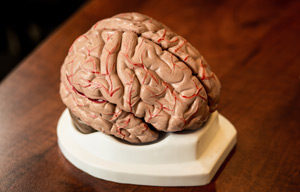WHAT IS A NEUROPSYCHOLOGIST?
 Choosing the right type of professional for your needs can be somewhat confusing. Understanding the differences between mental health professionals can be useful when deciding who best can help you.
Choosing the right type of professional for your needs can be somewhat confusing. Understanding the differences between mental health professionals can be useful when deciding who best can help you.
A Clinical Neuropsychologist is a professional with a doctoral degree specializing in the relationship between the brain and behavior. Clinical Neuropsychologists work with patients on a variety of brain-related issues including, but not limited to, memory difficulties, brain injuries, developmental disabilities and attention difficulties. They conduct evaluations specifically designed to assess the cognitive and behavioral impairments of brain dysfunction. Neuropsychologists work closely with doctors and neurologists. Patients are often referred to a neuropsychologist when physicians need more information about the cause of a condition and to what extent the condition is causing impairment.
While both clinical psychologists and clinical neuropsychologists hold doctoral degrees (PhD or PsyD) in the field of psychology, neuropsychologists have also received advanced training in the field of neuropsychology. In line with the training guidelines from the Houston Conference, a neuropsychologist will have completed extensive coursework in neuroanatomy, neurological disorders, neuroimaging, psychopharmacology, neuropsychological functioning, and neuropsychological assessment, as well as a two-year residency or fellowship in clinical neuropsychology.
Clinical Psychologists specialize in the assessment and treatment of patients with psychological problems such as anxiety, depression, marital difficulties, occupational problems, poor self-esteem, and stress-related disorders. While a neuropsychologist is interested in brain functions like attention, language and memory, clinical psychologists mainly focus on behaviors and emotions and spend much of their time conducting therapy. Although clinical neuropsychologists receive much of the same training as clinical psychologists, the focus of neuropsychologists is primarily on assessment and not on therapy.
A neuropsychological assessment differs from the psychological evaluations conducted by a clinical psychologist. A clinical psychologist will assess a patient's history, intellectual abilities, basic academic skills, and conduct a personality assessment. This type of assessment does not include tests that reliably capture cognitive difficulties associated with attention, memory, learning, or executive functioning weaknesses. A neuropsychological evaluation may include some of the same tests as a psychological evaluation to help determine between true organic brain issues and mental health issues.
Psychiatrists have a medical degree and have completed medical school and a residency in psychiatry. They are concerned with the diagnosis and treatment of emotional disorders, such as schizophrenia, mood disorders, anxiety disorders, severe neuroses, paranoia, and organic brain syndromes. Psychiatrists typically receive some training in neurology via a rotation in neurology and/or neurology coursework. Treatment is in the form of psychotherapy and medication management.
By comparison, clinical neuropsychologists spend considerably more time evaluating their patients. Neuropsychologists typically spend four to six hours with their patients during an evaluation. Neuropsychologists have more experience with patients with neurological impairments and are more sensitive to the underlying neurological aspects of the patient’s complaints and symptoms. Neuropsychologists often work with psychiatrists to help determine appropriate diagnosis and medication needs of their mutual patients.
Psychiatrists typically do not administer psychological testing because they are not qualified to score and/or interpret such tests. Psychiatrists frequently rely on the results of psychological or neuropsychological testing in order to arrive at their opinion. Psychiatrists traditionally conduct a clinical interview, history, record review, and mental status examinations, which are qualitative, non-standardized, and subjective.
Neurologists are medical school graduates who have completed a three-year residency in the field of neurology. Their focus is on the diagnosis and treatment of disorders of the nervous system, and they work almost exclusively with patients with neurological dysfunction. Neurologists use neuroimaging studies (e.g., MRI, CT scans, SPECT, PET and EEGs) to confirm or refute provisional diagnosis. Neurologists and neuropsychologists often work together to get the most complete and accurate diagnosis for their mutual patients.
